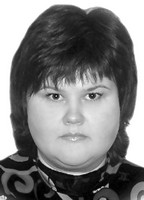Professional athletes' prestart condition control aspects
Фотографии:
ˑ:
Teoriya i praktika fizicheskoy kultury №4 2017, pp.23-25
PhD, Associate Professor E.G. Babich1
PhD, Associate Professor A.I. Rybakova1
PhD, Associate Professor N.V. Belyakova1
PhD, Associate Professor M.V. Tarasov1
1Russian State Social University, Moscow
The study considers the professional athletes’ prestart emotional condition control aspects. A variety of methods to balance and control the prestart emotions may be applied depending on the individual requirements and traits of every athlete including his/her mental and physical skills, sport qualification and other conditions and aspects. In the prudent mental setting for the upcoming event being attained, the growing mental and emotional tension will be controlled and focused rather on the critical technical, tactical and other performance components than on the own anxiety and perceived risks as such for success in the competitions.
The study data and correlation analysis was used to work out practical recommendations for the prestart condition control by athletes. The subject athletes were provisionally split up into three groups by the prestart emotional condition classes, and each of the groups was given the group-specific recommendations whilst the group coaching teams were given general instructions on how to improve the athletes’ precompetitive mental conditioning tactics and practices. The prestart emotional condition knowledge and mental control skills acquired by the athletes plus the group-specific teamwork-related knowledge and skills were found beneficial as verified by the growth of their competitive success rates. The mental condition self-control skills provided by the proposed mental conditioning model were proved to be one of the pivotal aspects of the athlete’s mental balancing skills.
Keywords: emotions, sport psychology, control, prestart emotional conditions, basketball.
References
- Babich E.G., Petrova E.A., Savchenko D.V., Belyakova N.V. Osobennosti emotsionalnykh predstartovykh sostoyaniy professionalnykh sportsmenov (na primere MBK «Dinamo», Moskva) [Prestart emotional states of professional athletes (case study of MBC "Dinamo", Moscow)]. Teoriya i praktika fiz. kultury, 2016, no. 3, pp. 29-31.
- Vardanyan Y.V., Vardanyan L.V. Kontseptualizatsiya predstavleniy o psikhologicheskoy bezopasnosti v sporte: problemy eksperimentalnogo issledovaniya [Conceptualization of ideas about psychological safety in sport: experimental study issues]. Sovremennye issledovaniya sotsialnykh problem. 2013, no. 8 (28). Available at: http://journal-s.org/index.php/sisp/article/download/8201311/pdf_404.
- Ivanina E.M. Vliyanie psikhicheskoy samoregulyatsii na prestartovye sostoyaniya sportsmenov [Influence of psychic self-regulation on athletes' pre-start conditions]. Vestnik Samarskoy gumanitarnoy akademii, 2012, pp. 1- 4.
- Kislyakov P.A., Shmeleva E.A., Tolstov S.N. Obespechenie sotsialno-psikhologicheskoy bezopasnosti sub'ektov obrazovaniya [Ensuring social and psychological safety of education subjects]. Voprosy psikhologii, 2015, no. 5, pp. 46-55.
- Malkin V.R. Upravlenie psikhologicheskoy podgotovkoy v sporte [Mental conditioning control in sport]. Moscow, Fizkultura i sport publ., 2008, 200 p.
- Rodionov A.V. Psikhologicheskaya podgotovka basketbolista na osnove mentalnogo treninga [Mental conditioning of basketball players based on mental training]. Available at: http://www.vst-basket-lesgaft.ru/content/view/30/7/ (02.12.2016).
- Sopov V.F. Teoriya i metodika psikhologicheskoy podgotovki v sovremennom sporte [Theory and methods of mental conditioning in modern sport]. Moscow: Triksta publ., 2010, 116 p.



 Журнал "THEORY AND PRACTICE
Журнал "THEORY AND PRACTICE